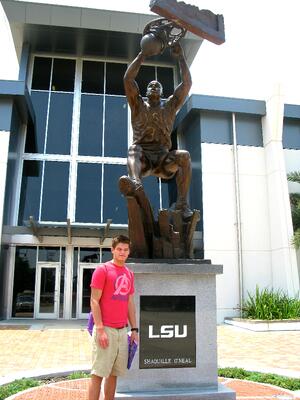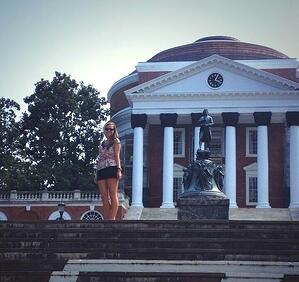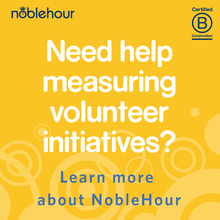In part two of our series on college visits, we discuss how to decide which schools to visit and when to schedule tours.
It’s time to face facts. You can’t put it off any longer. The little boy who held your hand while
walking into kindergarten and the sweet little girl who used to wear pigtails are in the final stages of determining where to go to college. Yes, college.
You’re ready now. You can do this. It’s time to start the college tours. While it might be easy for you as a parent to just handle it and schedule a few visits, it’s important your student is involved in the process. Before you begin booking flights or packing up the car, have your student do a little legwork.
Parameters
Have a discussion with your child. Talk about parameters. Do they want to go to a school in a big city or something more suburban or rural? Does the size of the campus matter? Consider categories – SEC versus Big Ten, small private school versus big state school, religious versus secular. Does your daughter want to go out of state? Talk about regions of the country. Does your son want to be on the west coast or the east coast, south or north? Does your student have a specific major in mind? Do they want to play sports or have a particular talent – theater, dance, music?
If you’re lucky, you might get something more than, “I don’t know.” My friend’s daughter has grown up in a very urban environment. She’s decided she wants to experience a more rural campus. We live in the Midwest. My son’s one major requirement is to be someplace warm! Keep asking questions to narrow down the list.
Have your child review college guidebooks and online sources like Fiske, Princeton Review, Barron’s, or U.S. News and World Report.
It’s also a good idea to talk to your child’s high school counselor before you visit schools. This person should know something about your student and could offer suggestions about which schools to consider. The counselor may also personally know college admission representatives or put you in touch with recent high school alums at different universities.
“The College Board has a Campus Visit Guide that can assist families in starting the process of determining schools to visit," said Deborah Kammerer, associate director recruitment & yield,
UC San Diego Office of Admissions & Relations with Schools, a member of the NobleHour Network. "It includes information on things to consider before you visit, ways to learn about schools online, a checklist for campus visits, and testimonials from students on how campus visits assisted in their college selection process.”
determining schools to visit," said Deborah Kammerer, associate director recruitment & yield,
UC San Diego Office of Admissions & Relations with Schools, a member of the NobleHour Network. "It includes information on things to consider before you visit, ways to learn about schools online, a checklist for campus visits, and testimonials from students on how campus visits assisted in their college selection process.”
Another resource that may appeal to your savvy social media student is to have them check out the Facebook pages, Twitter accounts or other forms of social media used by the universities that interest them.
As your child begins his research, encourage him or her to highlight 10-20 schools. Some kids may choose more, others far less. It’s just to get them thinking about where they want to go and to take ownership of their future. Once they have their picks, ask them why the schools are on the list. Be prepared for some lame answers, but keep digging. Maybe it’s the location. Maybe it’s the courses they offer. Maybe it’s because the football team won the national championship. Or, possibly, it’s because it’s the furthest school from you and all these questions!
“We told our kids to look through the lists and pick 20 schools that interest them,” said Terri Stuckey, a mother of two college students and a junior in high school. “Then, we went over the list and asked them why they found those schools interesting. I was into it more than my kids. The parents have to get it started though.”
“I was against visiting any schools until I had narrowed down my college options to two,” said Ellie McKnight, a senior in high school in Chicago. “My mom insisted we go on a college tour last spring break. Although I think most stuff about the school you can learn online, the visit on campus allowed the great opportunity to talk to faculty.”
McKnight said visiting the schools solidified her interest in William & Mary in Virginia, and Dartmouth in New Hampshire. It also sparked an interest in Emory University in Georgia.
Stay In Contact
If your child is like mine and doesn’t often check his e-mail, have him use your address or a new account to sign up for ACT, SAT and college information. Once my son completed the personal information sections for ACT and SAT, we started getting e-mails from universities all over the place. Some sites will also ask for a parent e-mail address, so you can keep on top of the information as well. It can be overwhelming. Stuckey said she created a college folder and moved e-mails into it every day and then reviewed them weekly. “I deleted some and responded to some, mostly asking for more information. I did the same with the paper mail too.”
Logistics
Stuckey said once they narrowed it down, she then looked at universities located in cities allowing flexible travel arrangements. They looked at cities with major airports, non-stop flights, or areas where they could visit more than one college in one trip. Also, if they had to fly, they committed to visiting at least two schools to make the trip more cost-effective.
cities allowing flexible travel arrangements. They looked at cities with major airports, non-stop flights, or areas where they could visit more than one college in one trip. Also, if they had to fly, they committed to visiting at least two schools to make the trip more cost-effective.
“We tried to travel when the kids were off school and took advantage of times when other high school students were in school.” Being from New Orleans, Stuckey used the Mardi Gras break to visit schools.
Jane Berry, a sophomore at Brandeis University in Massachusetts, said her mom made a planner for their visits together. “She mapped out our road trip with cool places to stay and facts about the school. This made a huge difference for me and made me really consider some Midwest schools.”
While it may be convenient to schedule tours during holiday and summer breaks, it doesn’t always give you a true picture of the campus. “It is also nice to visit the college or university during the academic year, when school is in session, to get a true sense of the campus atmosphere,” said Kammerer.
Stuckey agrees. “The best time to do a tour is when school is in session. Summer is okay if classes are in session or if there’s a new student orientation going on.”
Another option to maximize time and minimize out-of-town expense is to wait for acceptance letters to help determine which schools to visit. “We visited schools that we didn’t get a chance to see initially and also did some second visits to help make decisions,” said Stuckey.
“UC San Diego hosts a day just for admitted students and their families called Triton Day,” said Kammerer. “It’s a great opportunity for admitted students to explore the campus and the variety of opportunities available.”
said Kammerer. “It’s a great opportunity for admitted students to explore the campus and the variety of opportunities available.”
Scheduling
“Planning a visit may vary from institution to institution, but many universities including UC San Diego offer an online registration site that allows visitors to schedule their campus tour,” said Kammerer.
Stuckey said almost all schools have a “Plan Your Visit” section on their websites with information about flights, travel agencies, car rentals, and lodging. Always ask if they offer discounts for college visits.
Many schools have open house events with tours, presentations, etc. You can check each school’s website in their admission section for dates and information about attending those events or to schedule individual tours. Tours are offered throughout the week and sometimes on Saturdays. Depending on the university, you may be able to sit in on a class, visit professors, meet coaches or visit with students.
“At Emory, my tour allowed me to get in contact with the dean of admissions, which definitely impacted how I viewed the school,” said McKnight.
“The availability of group and individual tours and spending the night on a campus will vary across universities,” said Kammerer. “In terms of travel and accommodations, it is best to plan ahead. Many institutions host links to area visitor offices and hotel sites on their tour page.”
“Most times when a student is closer to making up their mind about attending a particular school, it is recommended that the student revisit if possible and perhaps stay overnight to get a more robust experience,” said Charles Basden, Jr., coordinator, special projects, for George Washington University, a member of the NobleHour Network.
Basden also suggests inquiring about potential special situation funds universities may have to help assist families with their effort to visit campus.
Stuckey advises staying as close to campus as possible. It’s a great way to learn more about the community. When I visited LSU with my son, we stayed at the Cook Hotel right on campus. We could walk through the university grounds, meet and speak with students along the way and we were able to get a feel for campus life.
Also, when making travel arrangements, consider arriving on campus early or staying a few hours after the tour. There’s nothing worse than missing a casual opportunity to visit with students, professors, financial aid representatives, or admission counselors because you have to rush off to catch a flight. Remember, if it’s a group tour, there will be other parents who want to meet with university staff also. Be prepared to wait.
Have a cup of coffee at the local café or the bookstore. Grab lunch in the dining hall or dinner at a favorite university hangout. Walk around campus on your own. It’s a great opportunity to speak with students and ask them questions about school. “Kids get a strong feeling about the campus and the people they meet on campus,” said Stuckey.
Next time - Part III - Going on Tour and questions, lots of questions!
Part I - Spring Break is a Good Time to Start College Visits
Photo credits: Dolly Duplantier, Terri Stuckey, and UC San Diego Publications/Erik Jepsen




 determining schools to visit," said Deborah Kammerer, associate director recruitment & yield,
determining schools to visit," said Deborah Kammerer, associate director recruitment & yield,
 cities allowing flexible travel arrangements. They looked at cities with major airports, non-stop flights, or areas where they could visit more than one college in one trip. Also, if they had to fly, they committed to visiting at least two schools to make the trip more cost-effective.
cities allowing flexible travel arrangements. They looked at cities with major airports, non-stop flights, or areas where they could visit more than one college in one trip. Also, if they had to fly, they committed to visiting at least two schools to make the trip more cost-effective. said Kammerer. “It’s a great opportunity for admitted students to explore the campus and the variety of opportunities available.”
said Kammerer. “It’s a great opportunity for admitted students to explore the campus and the variety of opportunities available.” Springtime is around the corner. That means high school seniors are eagerly awaiting
Springtime is around the corner. That means high school seniors are eagerly awaiting

 Van Dyke said when he asks students why they want to pursue a specific major; they usually reply that they are good in that subject. For example, a student good in Math wants to study Engineering, but he may not look further than the obvious career path. They don’t think about all the different options for their particular set of skills. Many students just don’t want to do the research.
Van Dyke said when he asks students why they want to pursue a specific major; they usually reply that they are good in that subject. For example, a student good in Math wants to study Engineering, but he may not look further than the obvious career path. They don’t think about all the different options for their particular set of skills. Many students just don’t want to do the research. Allison’s volunteer work at the camp and throughout high school not only confirmed her desire to work in medicine, but also influenced her decision to become a pediatrician. A 2012 graduate of
Allison’s volunteer work at the camp and throughout high school not only confirmed her desire to work in medicine, but also influenced her decision to become a pediatrician. A 2012 graduate of  “Every year, since before I can remember, my mom brought me to help her at Krewe de Camp. When I was 8 years old, I met a girl named Katie who had Cerebral Palsy. She couldn't use her voice to speak so she used sign language. As soon as camp was over I asked my mom for some sign language books and dictionaries so I could learn how to communicate with Katie for the next summer. I can trace back my decision to go to RIT for interpreting to that day. I loved the feeling of being able to communicate with someone through a visual language and I wanted to be able to facilitate communication between people like Katie and other people who don't know her language.”
“Every year, since before I can remember, my mom brought me to help her at Krewe de Camp. When I was 8 years old, I met a girl named Katie who had Cerebral Palsy. She couldn't use her voice to speak so she used sign language. As soon as camp was over I asked my mom for some sign language books and dictionaries so I could learn how to communicate with Katie for the next summer. I can trace back my decision to go to RIT for interpreting to that day. I loved the feeling of being able to communicate with someone through a visual language and I wanted to be able to facilitate communication between people like Katie and other people who don't know her language.”  Walker thinks it’s never too soon to begin student volunteering in the community. “It can provide an easy and free way for students to get an idea about their potential career path.”
Walker thinks it’s never too soon to begin student volunteering in the community. “It can provide an easy and free way for students to get an idea about their potential career path.” 



